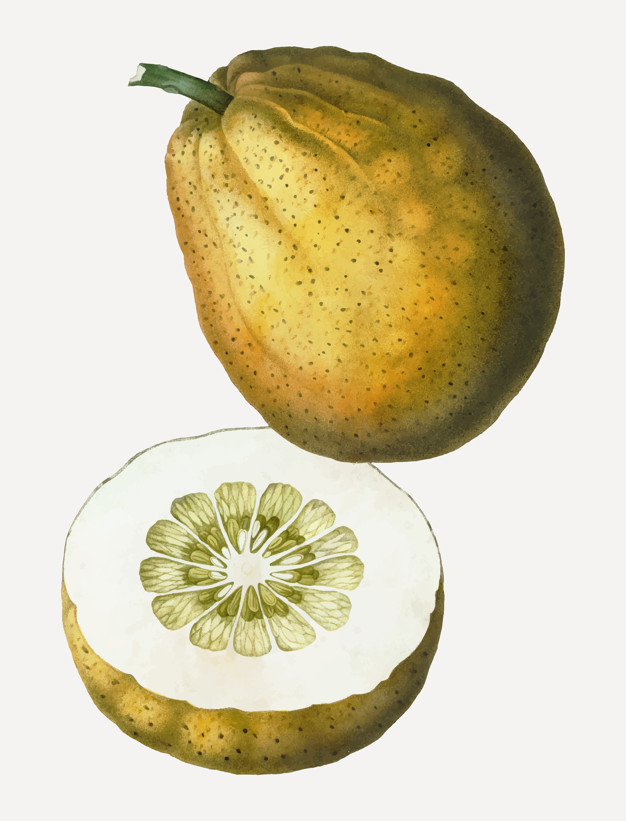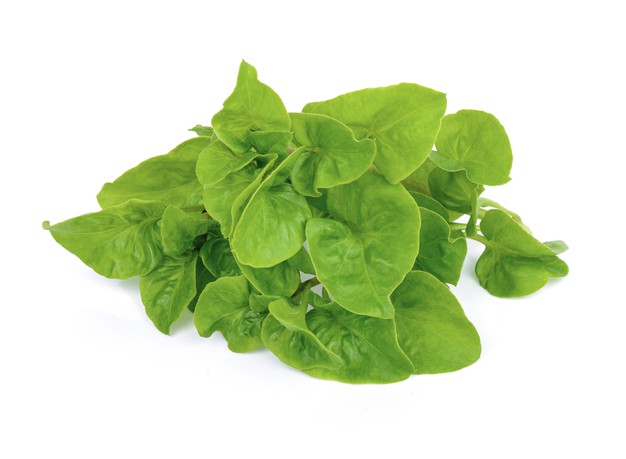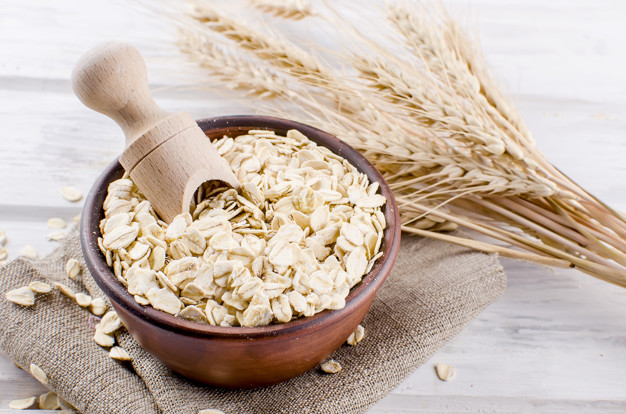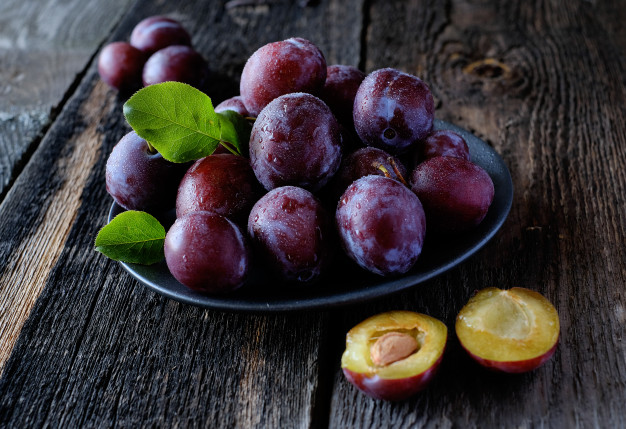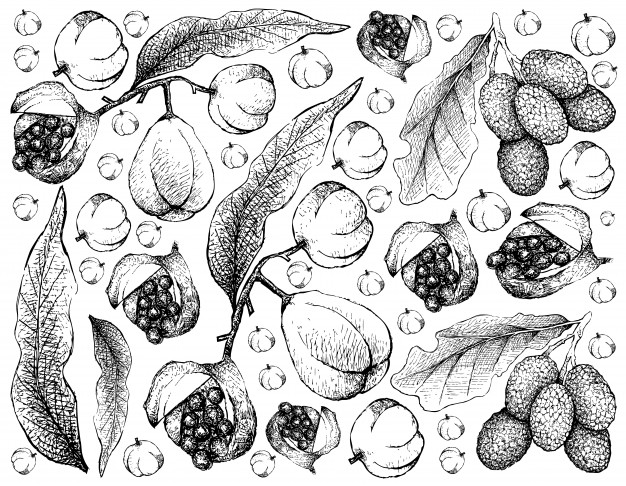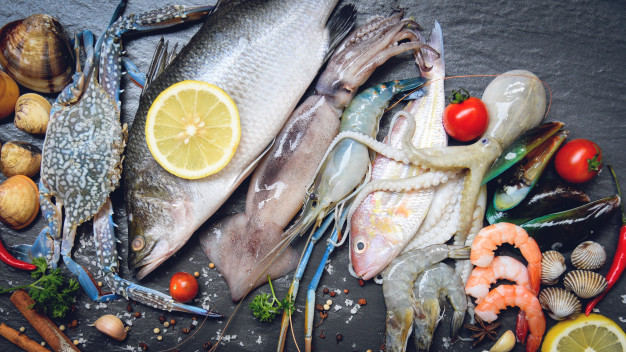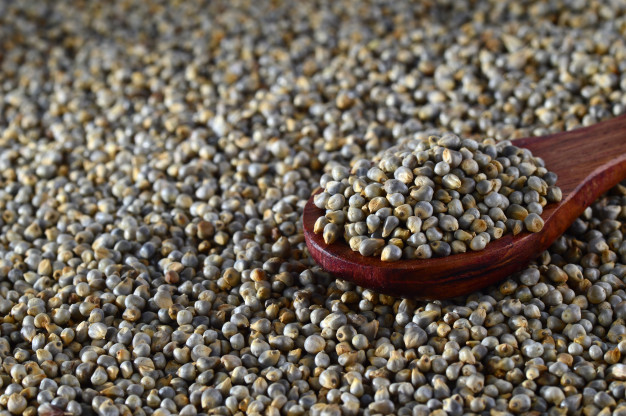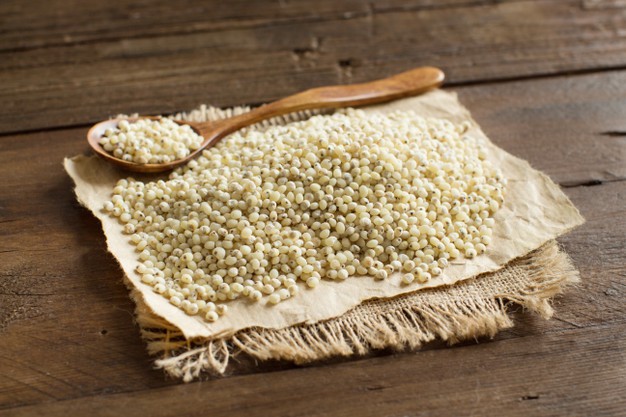Pomelo is a nutritious fruit belongs to Rutaceae family. It is significantly rich in Vitamin C, fibre, potassium and antioxidant and it has been used for centuries for various medicinal purposes.
Characteristics
- It is considered as largest citrus fruit
- The colour of the skin of ripe pomelo is pale green to yellow whereas the flesh of ripe pomelo is white in colour
- The skin of raw pomelo fruit is white
- Several verities of pomelo are found in nature and they vary in their sweetness, tartness and bitterness
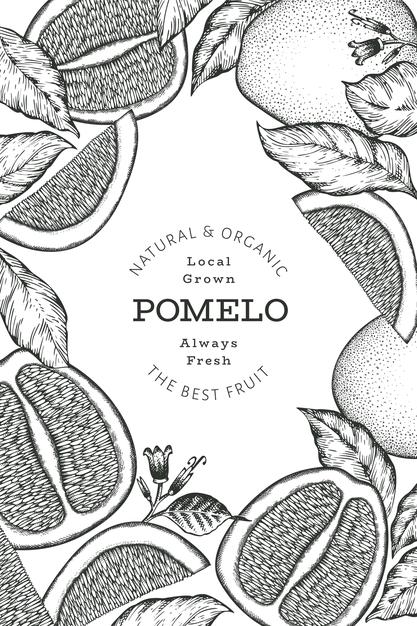
Difference between Pomelo and Grapefruit
Pomelos are believed to be the ancestors of grapefruits. Below point will discuss the basic differences of pomelo and grapefruit –
- Pomelo is comparatively larger in size than grapefruit
- Colour of pomelo is yellow-green but grapefruit has yellowish pink colour
- Pomelo is native to South east Asia whereas grapefruit is native to the semi tropical area of united States
- It has seen that good pomelo is relatively sweeter that grapefruit
- Pomelo contains comparatively higher potassium than grapefruit whereas grapefruit contains comparatively higher amount of Vitamin A
Nutritional profile

- It contains desirable amount of carbohydrates and dietary fibres
- It contains lesser amount of protein as well
- It contains too some extent of fat
- It is also considered as a perishable food as it contains enough moisture
- It contains several vitamins and significantly rich in Vitamin C, Vitamin A, Vitamin B1, B2, B3 and B6
- It also contains numerous minerals like calcium, phosphorus, sodium, potassium, copper, magnesium, zinc and iron
- It is packed with antioxidants. Its polyphenols, lycopene, naringin and naringenin components are responsible for exerting antioxidant activity and help to reduce oxidative stress
Role of Pomelo on health and disease prevention
Role on immunity
- Its micronutrient contents are responsible for exerting immune boosting activities
- Vitamin C content of pomelo plays significant role in protecting the body from free radical induced oxidative damages as it exerts strong antioxidant effects
- It has seen that consumption of pomelo significantly improves the amount of WBC and thus increases the microbes killing ability of body as well as phagocytosis
- It is also very effective for preventing systematic infections
- Inclusion of pomelo in diet is very useful for enhancing the overall immunity of the body
Role on digestive health
- It is packed with dietary fibre thus its consumption is very effective for promoting digestive health
- It helps to prevent constipation
- It is also very effective for improving the symptoms of hemorrhoids
- It helps to promote the growth of intestinal beneficial microbes thus its consumption is thought to be very beneficial for improving gut health

Role on skeletal health
- It is significantly rich in calcium, phosphorus, iron, zinc, copper and manganese. All of these trace elements play vital role in strengthening the skeletal system
- It also plays imperative role in maintaining bone health
- It helps to improve bone mass and bone mineral density thus its consumption is considered to be very helpful for increasing bone strength
Role on weight management
- Its fibre content is considered as the main constituent that helps in weight reduction. Fibre is related with providing a feeling of stomach fullness that helps to reduce appetite hence decreases over consumption
- It contains an enzyme named carnitine palmitoyl transferase, which plays imperative role in stimulating lipolysis that facilitates weight reduction
Role on cardiac health
- Flavonoids, ascorbic acid and polyphenolic components of pomelo play significant role in reducing cholesterol concentration and triglyceride level, which play vital role in decreasing coronary issues
- Its fibre content is also responsible for decreasing total body fat percentage and also helps to improve HDL concentration, both of which provide a positive impact on cardiac health

Role on preventing blood pressure
- Potassium component of pomelo is considered as the principal component that helps in regulating blood pressure
- It acts as vasodilator, which is also associated with maintaining blood pressure by releasing the tension in blood vessel
Infection preventing role
- It has potent antimicrobial activity, which helps to prevent microbial growth in host. Its consumption is very effective for protecting the body from infectious diseases
- It is very effective against fungus and bacteria
- Essential oil derived from pomelo has been extensively used against Penicillium expansum (fungus)
- It has seen that pomelo essential oil is also very effective for inhibiting the development of bacterial biofilm on soft contact lenses
Cancer preventing role
- Consumption of pomelo significantly decreases the prevalence of carcinoma as it has anti-carcinogenic property
- It helps to suppress the growth of cancerous cells in body
- It has seen that polysaccharide present in the peel of pomelo plays significant role in inhibiting the growth of cancerous tumors. The leaves of pomelo fruit also exert anticancer and antitumor activities
- It significantly decreases the prevalence of prostate cancer, lung cancer and pancreatic cancer
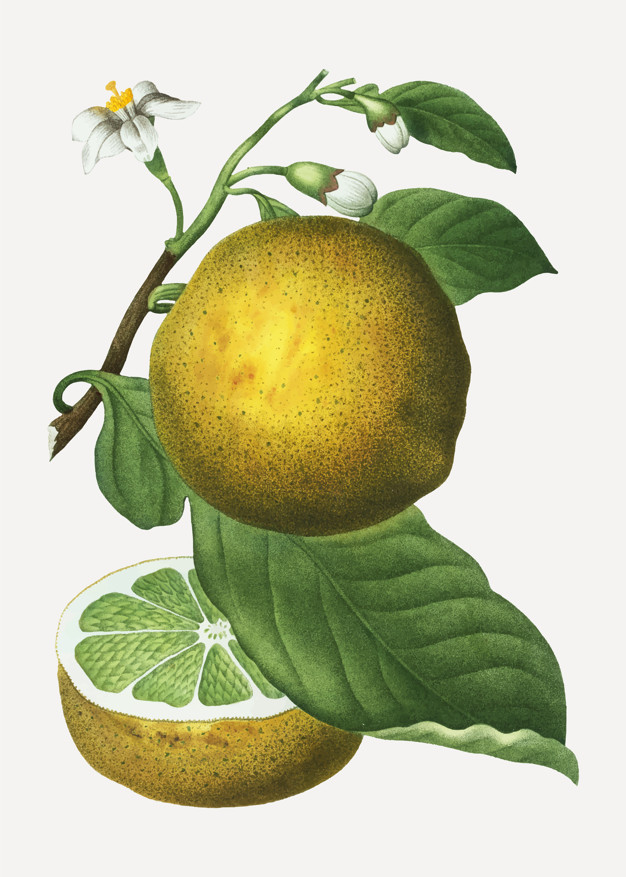

Role on oral health
- Consumption of pomelo is very effective for strengthening the gum as it contains significant amount of Vitamin C
- Its consumption is also related with keeping dental problems away
- It helps to prevent tooth decay
- It is also very effective for preventing gingivitis
- Its regular consumption is associated with decreasing the prevalence of dental plaque formation
- It helps to improve oral hygiene as well by preventing the growth of those microbes, which are responsible for oral infections
Hypoglycemic effect
- Though it has high glycemic index but its consumption in moderate amount helps to maintain blood sugar level in normal range
- Its fibre content is associated with decreasing the rate of glucose absorption from intestinal epithelial cell thus helps to decrease glucose load in blood
Role on hair
- It is packed with various important micronutrients like Vitamin A, Vitamin E, Vitamin B6, Vitamin B12, zinc and iron which play imperative role in improving hair health
- It helps to strengthen the hair and also helps to make the hair shiny
- It helps to prevent hair falls as well
- It is also associated with preventing dandruff
- It is better to consume pomelo for improving the overall quality of hair

Role on preventing ageing
- It contains an imperative substance called spermidine, which helps to fight against ageing as it is directly linked with protecting the cells from various processes related with cellular damages and aging
- Consumption of pomelo or its application on skin significantly reduces wrinkles, age related spot and pigmentation. It also helps to make the skin soft, youthful and fair
- Its vitamin C content is also responsible for protecting the skin from free radical induced oxidative damages thus helps to promote skin health
Other benefits
- It helps to prevent muscle cramp
- It is also very effective for preventing muscle stiffness
- It helps in rapid wound healing
General consideration of using Pomelo
- It can be consumed fresh or can also be consumed in dried form
- It can be used for preparing desserts
- It can be used for preparing candies as well
- It can be consumed as snack
- It can also be consumed with salads
Risk factors
Individual who have liver or kidney problems should avoid its consumption as it is rich in ascorbic acid and potassium.
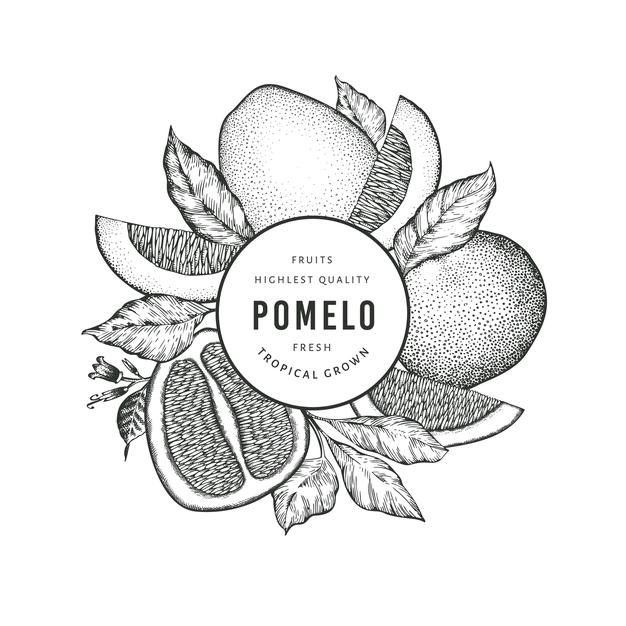

Source:
Abudayeh, Z.H., Al Khalifa, I.I., Mohammed, S.M. and Ahmad, A.A., 2019. Phytochemical content and antioxidant activities of pomelo peel extract. Pharmacognosy Research, 11(3), p.244.
Grenier, J., Fradette, C., Morelli, G., Merritt, G.J., Vranderick, M. and Ducharme, M.P., 2006. Pomelo juice, but not cranberry juice, affects the pharmacokinetics of cyclosporine in humans. Clinical Pharmacology & Therapeutics, 79(3), pp.255-262.
Kumar, D., Ladaniya, M.S. and Gurjar, M., 2019. Underutilized Citrus sp. Pomelo (Citrus grandis) and Kachai lemon (Citrus jambhiri) exhale in phytochemicals and antioxidant potential. Journal of food science and technology, 56(1), pp.217-223.
Mäkynen, K., Jitsaardkul, S., Tachasamran, P., Sakai, N., Puranachoti, S., Nirojsinlapachai, N., Chattapat, V., Caengprasath, N., Ngamukote, S. and Adisakwattana, S., 2013. Cultivar variations in antioxidant and antihyperlipidemic properties of pomelo pulp (Citrus grandis [L.] Osbeck) in Thailand. Food chemistry, 139(1-4), pp.735-743.
Methacanon, P., Krongsin, J. and Gamonpilas, C., 2014. Pomelo (Citrus maxima) pectin: Effects of extraction parameters and its properties. Food Hydrocolloids, 35, pp.383-391.
Quan, W., Tao, Y., Lu, M., Yuan, B., Chen, J., Zeng, M., Qin, F., Guo, F. and He, Z., 2018. Stability of the phenolic compounds and antioxidant capacity of five fruit (apple, orange, grape, pomelo and kiwi) juices during in vitro‐simulated gastrointestinal digestion. International Journal of Food Science & Technology, 53(5), pp.1131-1139.
